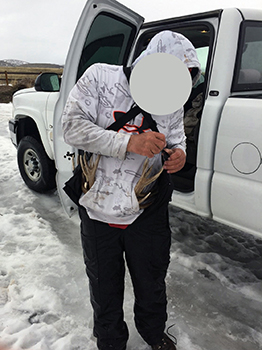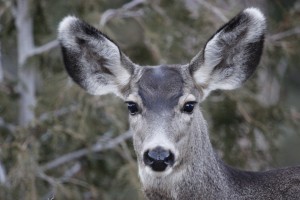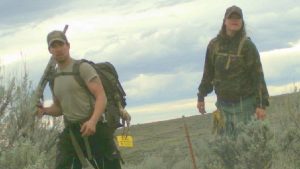On February 3rd, Utah’s Division of Wildlife Resources Director Gren Sheehan closed the entire state to shed hunting on both public and private lands. The closure, set to expire on April 1st, was designed to reduce the stress on deer, elk, and moose as winter conditions have made it difficult for the animals to survive.
Shed hunting is a growing hobby and for some, can be quite lucrative. While many of us enjoy setting out into the woods in search of antlers strictly out of a deep-rooted penchant for being in the outdoors, others have found ways to make a living, selling the discarded bone to buyers across the country.
With this in mind, Division of Wildlife Resources officers in Utah was equipped with a good inclination that despite the suspension and advisory, there would still be some who would violate.
Spending more than 500 hours monitoring areas in which big game animals have been congregating, conservation officers have been busy citing would-be shed hunters, handing out a total of 16 citations to individuals so far this month.
“Our officers cited these individuals after watching them look for and then pick up antlers,” DWR Captain Mitch Lane says. “Or, we caught them with antlers in their possession.”
Unbeknownst to the unabashed shed hunters, there were even a couple of cases where officers watched violators physically picking up antlers and caching them in strategic locations, to be retrieved at a later time. In one such instance, officers waiting for a violator has he walked off the mountain greeted him at the bottom, questioning what they just witnessed.
“At first,” Lane says, “the individual denied they were shed hunting, even though the officer watched him do it. It was easy to find the evidence, though: after the officer interviewed the person, and let him go, he followed the person’s foot prints in the snow, right to the spots where the antlers were stashed.”
After retrieving the stashed bone, the officer promptly contacted the individual, at which point the offenders pleaded guilty to gathering the antlers illegally.
“In each case,” he says, “the person said they knew the shed antler gathering season was closed, but they couldn’t resist the temptation to gather antlers.”
All illegally collected antlers have been seized by conservation officers and those that have violated the closer were each cited with an unlawful take of protected wildlife, facing fines upwards of $1,000.
In addition to observing people gathering antlers, Lane says officers have made several cases after receiving tips on the UTiP hotline. The hotline number is 1-800-662-DEER (3337).
“We’d like to thank those who have helped us enforce the closure,” he says. “We encourage people to continue reporting violations they observe or they’re aware of.”
Lane says enforcing the shed antler closure will remain a top priority for DWR officers until the closure ends on April 1.




